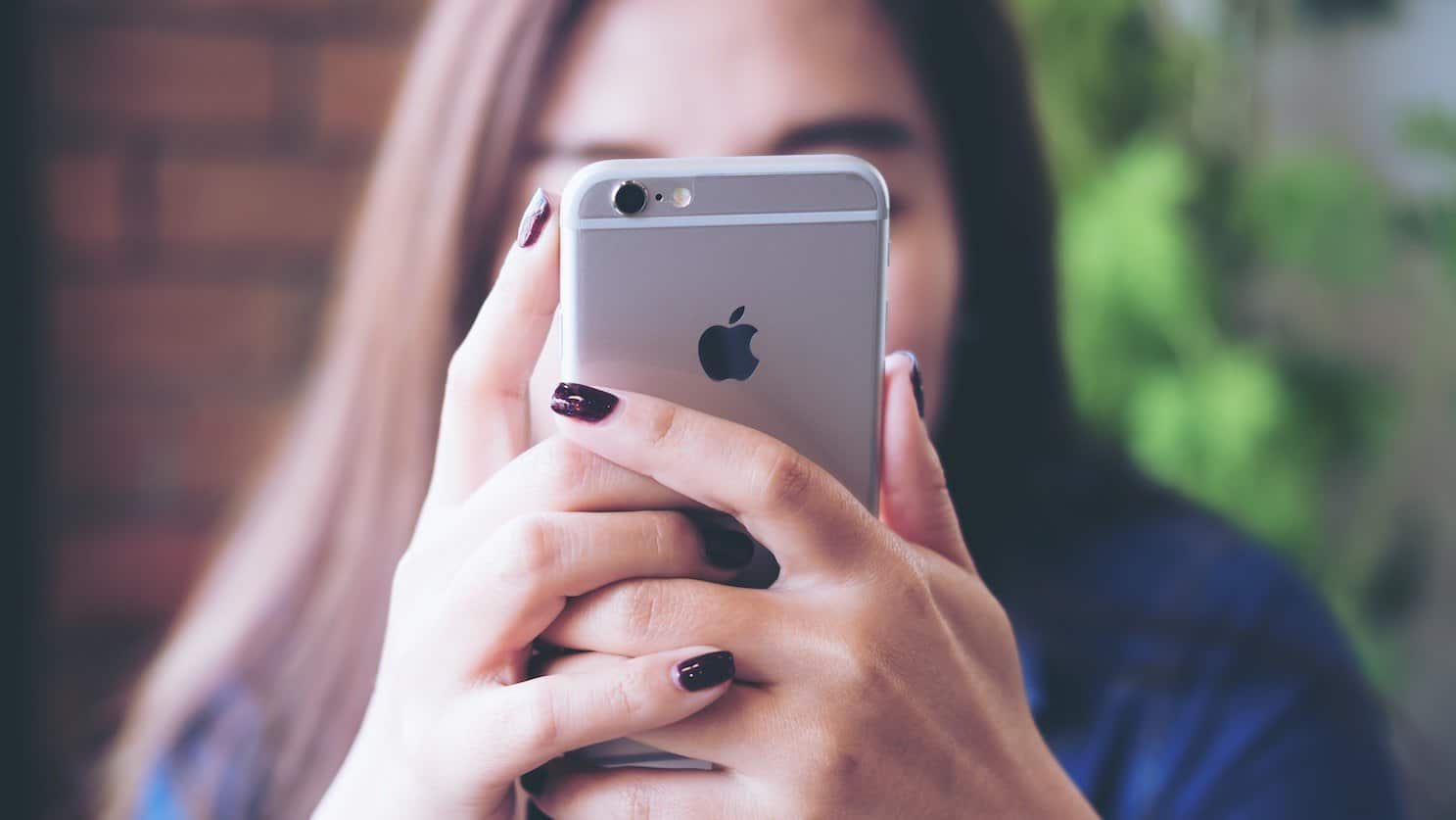Costhetics team members spend a massive amount of time on their phones and were especially mobile-centric during Straya’s lockdown.
Statistics suggest adults spend nearly half the day consuming some form of digital content. We know that it can be hard on the eyes, but there’s something else going on, too…and it isn’t good.
Lately, several of us have noticed that our complexions have gone from glowing to grotty, especially in the cheek area. Initially, we blamed a dirty screen for the problem. After some additional research, however, we learned that the blue light emitted by mobile phones may be wreaking havoc with your skin.
What Is Blue Light?
Blue light is a high-energy, short wavelength light. It’s part of the spectrum of wavelengths that make up what is known as visible light. It plays a critical role in maintaining good health, as it regulates our body’s circadian rhythm.
The main source is the sun, though blue light is different from UVA and UVB rays. Additionally, a significant dose comes from the HEV (High Energy Visible) light that illuminates:
- Indoor lighting
- Computer Screens
- Mobile phones
- Laptops
- Other computer devices
Study Results are Sparse, But Significant
Unfortunately, the study of blue light and skin has been limited to one small, peer-reviewed study that found exposure to blue light is more damaging than comparable exposure to UVA rays. It caused:
- More hyper-pigmentation
- More redness
- More swelling
Nearly a decade after it was published this study continues to be the reference point for dermatologists. More recently, a 2015 study published in Oxidative Medicine and Cellular Longevity found:
- Exposure to blue light might stimulate the production of free radicals in skin, which can accelerate the appearance of ageing.
There is also some evidence that as blue light penetrates the skin, reactive oxygen in the skin damages DNA, thereby causing:
- Inflammation
- Photo-ageing
- Wrinkles
- Degraded skin elasticity
- Breakdown of healthy collagen
- Breakdown of elastin
- Hyperpigmentation
“I am seeing a new pattern of hyperpigmentation in some patients that I am concerned is coming from holding a cell phone to their face,” a Miami-based dermatologist told Allure Magazine. If that sounds like something you’ve been experiencing, too, here are some ways to limit your exposure:
- Go shopping – Explore the new breed of blue light protection skin products, including:
- Serums
- Moisturisers
- Sunscreens
Do these products work as well as promised? Again, we need to say that more research is needed. If you’re a better-safe-than-sorry kind of person, you may want to opt for adding blue-light protection to your skin-care routine, particularly if you are extremely screen-centric.
- Turn it down – Cranking down the brightness level on your screen can cut down on blue light exposure. You may find you can use darker night settings during the day or simply turn down the intensity. Take care, however, as you don’t want to lower the screen light so much it causes eye strain.
Rosier Side of Blue Light: Therapy for Skin Conditions
Despite the negatives associated with blue light from screens, dermatologists have been providing therapeutic light treatments with blue lights for years. Blue light therapy uses light from an LED (light emitting diode) bulb to target highly specific areas. The light penetrates pores and hair follicles to:
- Target the sources of skin problems
- Treat acne
- Treat psoriasis
- Reduce discolouration
Blue (and red) light treatments are especially useful for people with sensitive skin who are not suited to therapies such as:
- Topical creams
- Dermabrasion
Happily for patients, as the uses for blue light therapy expands, light therapy devices have become more effective, more available, more affordable, and even created for home use…though Costhetics believes it’s a therapy best administered by a professional.
The Costhetics Solution to Blue Light Dry Skin
With only a few studies and a limited amount of anecdotal reports to provide evidence, the jury still remains out on whether our communications devices are generating enough blue light to do damage. That being said, there is growing consensus among dermatologists, however, that digital blue light deserves a black mark for what it does to your skin.
What do you think?
